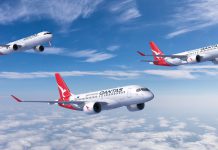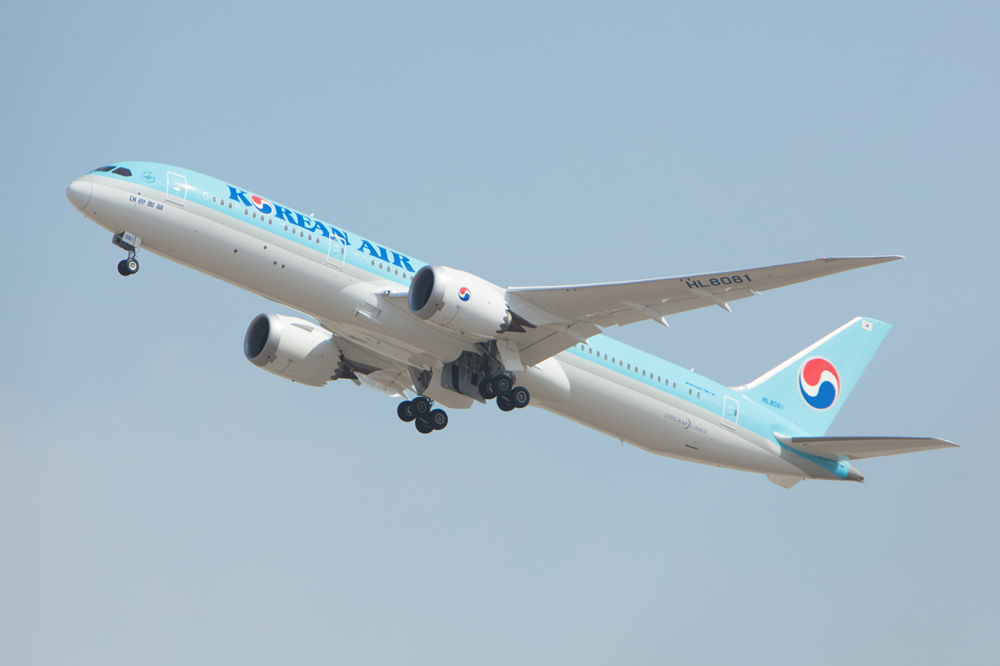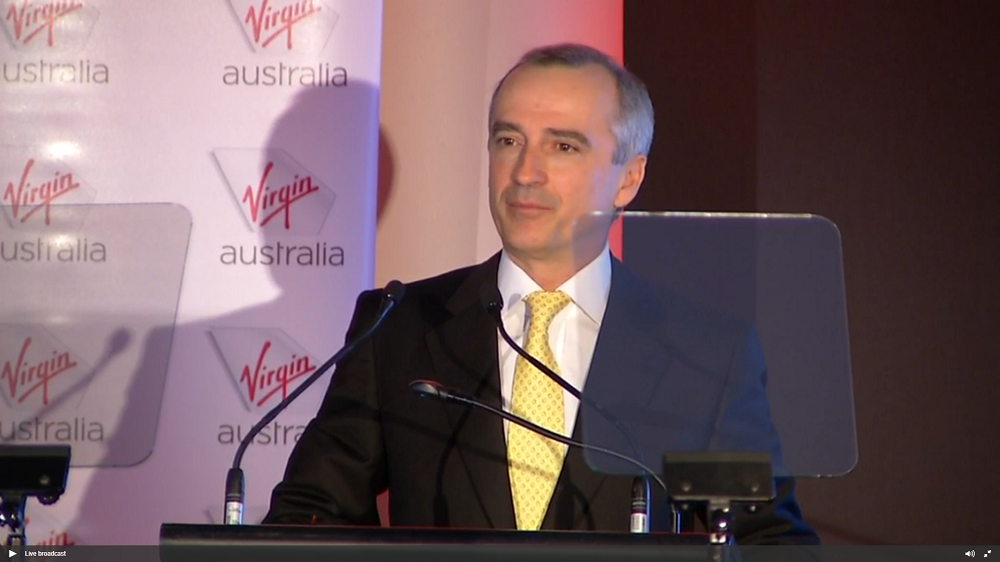Virgin Australia chief executive John Borghetti is confident the airline is headed for a first-half profit after accounting adjustments saw its fiscal 2018 statutory net loss deepen to $A653.3 million.
The statutory after-tax loss compared to a result last year of $A185.8m and came as group revenue grew by 7.4 percent to $A5.4 billion.
The group’s underlying profit before tax of $A109.6 million was up $A113.3 million on the 2017 financial year. Its net loss attributable to shareholders was $A681 million, a deterioration on the previous year’s negative figure of $A220.3 million.
The Virgin chief is aware that comparisons will be drawn between Virgin’s headline-grabbing statutory loss and the big profit Qantas unveiled last week.
“Clearly what we rely on is that people see through the numbers and look at the actual underlying strength of the business,’’ he said during the airline’s results announcement.
“And there is no doubt that this business is in the strongest position it’s been certainly for all the time I’ve been here — and beyond — on some metrics.”
Read:Virgin Australia orders 737 MAX 10s
Both Borghetti and chief financial officer Geoff Smith were bullish about the airline’s performance as it recorded the highest underlying pre-tax profit in 10 years — $A109.6 million — and its domestic operations produced record earnings.
Domestic earnings before interest and tax (EBIT) of $A246.1 million were up 165 percent on the previous year, a record operating cash flow was up 108 percent to $A570.4 million and the airline’s cash balance of $A1.4 billion was the highest ever.
The airline’s Better Business Program, originally forecast to deliver $A300 million a year in savings, is also on track to deliver $A400 million in annualized savings.
The airline has also girded itself against fuel price rises, with 83 percent of its fuel hedged in fiscal 2019 and 48 percent hedged the following year, with the ability to participate if the price drops.
It wasn’t all beer and skittles: EBIT at Virgin International fell by $A13.3 million to a loss $A12.8 million, largely due to a $A13 million “headwind’ from rising fuel prices and an estimated $A10 million impact from volcanic activity in Bali.
Tigerair Australia’s EBIT fell $A11.9 million to a loss $36.2 million while similar earnings at the Velocity frequent flyer program declined $A32.7 million to $A110.1 million.
But the biggest contributors to the big statutory loss were non-cash accounting adjustments and restructuring charges.
The restructuring charges of $A148.5 million primarily related to the Better Business Program and are continuing to fall after reducing $A96.7 million compared to fiscal 2017.
Smith said these were one-off costs related to individual programs that would fall away while the benefits would remain
The airline also made an accounting adjustment to recognize an impairment of $A120.8 million on the value of a mixture of Virgin International aircraft and non-aircraft assets.
There was also a second accounting move to “derecognize” $451.9 million in deferred tax assets.
The executives emphasized that these accounting moves were non-cash and did not affect the airline’s underlying results or their confidence in its future.
They said they represented a prudent approach to the Virgin balance sheet and noted that the tax assets were still available for later use.
“I reiterate the fact that those tax assets, or those tax losses, are always available to this group to reduce the amount of tax payable into the future,’’ Smith said.
“This is an accounting adjustment and the tax shield, if you will, continues to remain.”
The upshot, according to Smith, was that Virgin would have “sustainable, profitable operations going forward.”
Borghetti, who has a legendary reluctance to predict future results, said he couldn’t recall giving as firm a view as he had in the airline’s outlook that it would be profitable on both an underlying level and a statutory level in the first half of this financial year.
“I think that should display a fair degree of confidence on where we believe we are on the journey and how important those fundamental metrics are that we’ve released today,” he said.
























